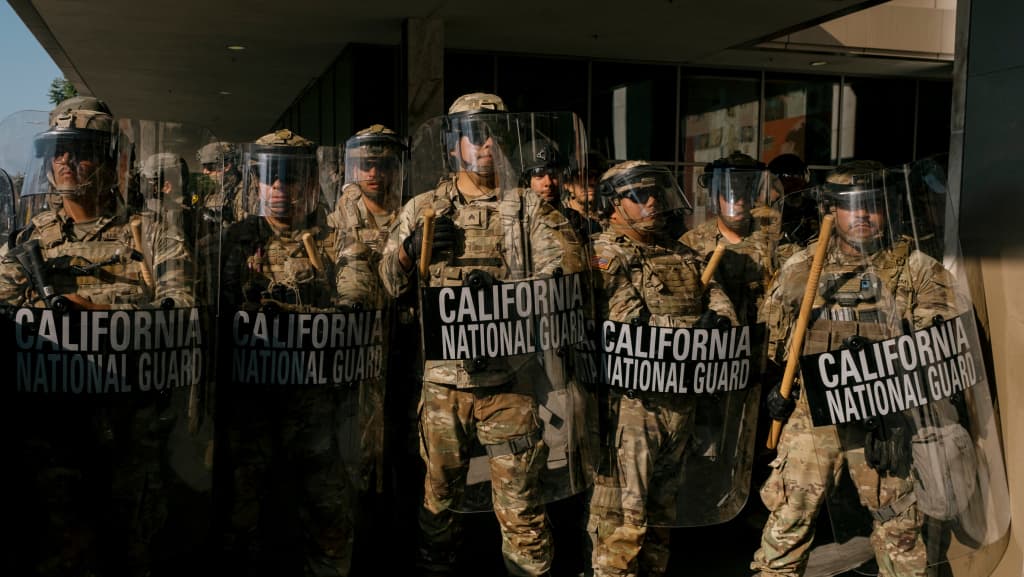
US Federal Judge Blocks Trump’s Use of Troops in California Crime Crackdown
Ruling cites violation of Posse Comitatus Act, curbs president’s bid to expand military role in domestic law enforcement.
A federal judge in San Francisco on Tuesday barred the Trump administration from using the US military to fight crime in California, finding that the deployment of troops during immigration and drug raids breached a longstanding law separating the military from civilian policing.
US District Judge Charles Breyer ruled that the administration had “willfully violated” the Posse Comitatus Act, which restricts the use of armed forces for domestic enforcement. The case stemmed from President Donald Trump’s June deployment of 4,000 National Guard soldiers and 700 active-duty Marines to Los Angeles, ostensibly to support federal agents during large-scale immigration operations that had sparked widespread protests.
The decision dealt a setback to Trump’s effort to expand the role of the military on U.S. soil -- a move critics warn risks politicising the armed forces and intimidating civilians. Breyer’s injunction, limited to California, is on hold until September 12, giving the administration time to appeal.
Trump defended the deployment, claiming it restored order and vowing to send troops to other cities. “Chicago is a hellhole right now. Baltimore is a hellhole right now,” he said at a press conference. “We have the right to do it because I have an obligation to protect this country.”
Breyer, however, rejected that reasoning. “To use this as a hook to send military troops alongside federal agents wherever they go proves too much and would frustrate the very purpose of the Posse Comitatus Act,” the Clinton-appointed judge wrote.
California Governor Gavin Newsom, who brought the lawsuit, hailed the ruling as a victory against what he called Trump’s “illegal militarisation of an American city.” He argued the continued presence of around 300 National Guard members in Los Angeles could intimidate voters ahead of November’s elections.
Legal experts said the decision could shape how courts in other jurisdictions handle future disputes over the use of troops for domestic enforcement, an area rarely tested in modern times. “It’s going to be highly influential for any challenges in other cities,” said Brenner Fissell, a law professor at Villanova University.
The ruling underscores the constitutional limits on presidential authority in deploying troops domestically -- a flashpoint that could grow sharper as Trump signals plans to extend military involvement in cities beyond California.
For any enquiries please fill out this form, or contact info@thelawreporters.com and Follow The Law Reporters on WhatsApp Channels